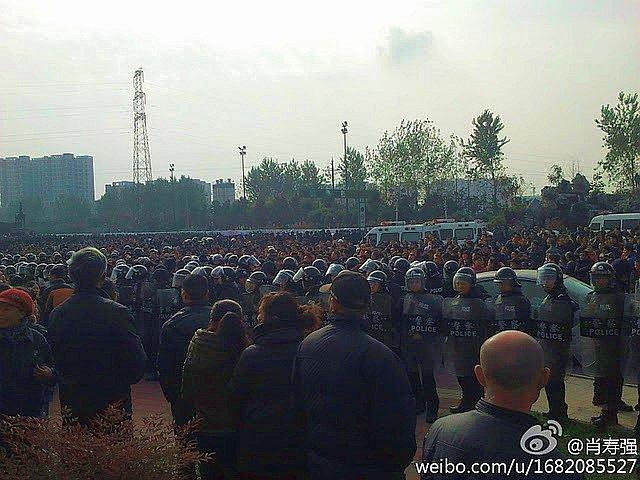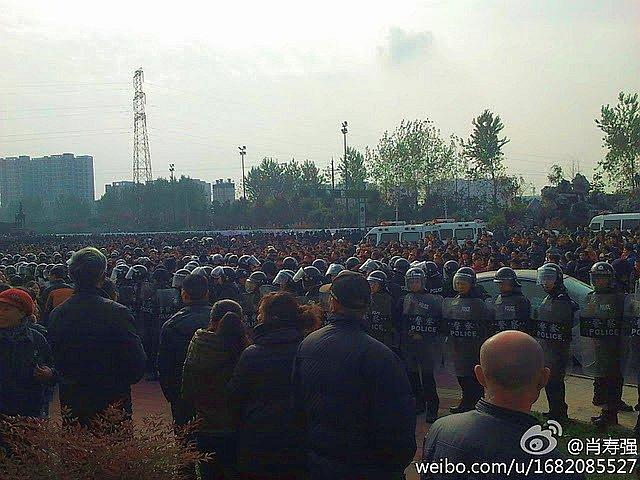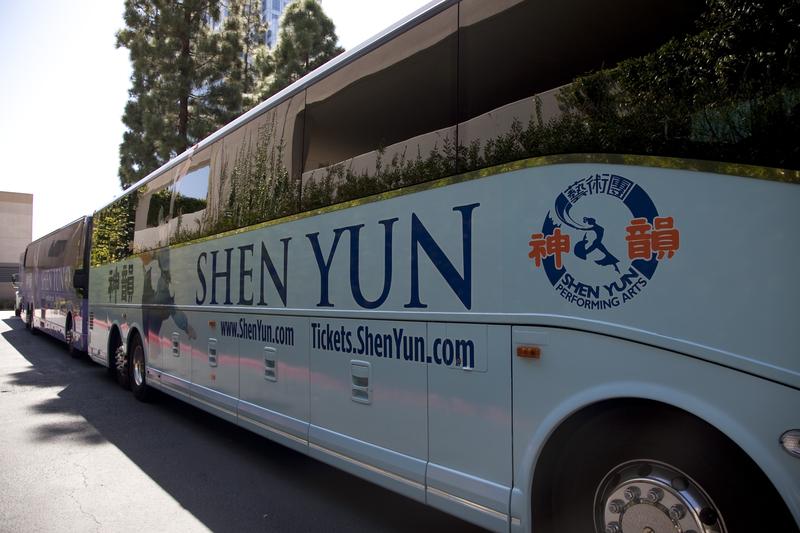A wave of large-scale strikes and protests in China during the first week of 2012 leads experts to predict that the Chinese communist regime will be facing increasing pressure from millions of disgruntled farmers, workers, and other disenfranchised groups this year.
Protests have erupted in at least six Chinese provinces--Guangxi, Guangdong, Sichuan, Jiangsu, Henan, and Liaoning--in the first week of this year.
On Jan. 1, thousands of people, who lost their savings in an investment scam, took to the streets in the eastern province of Henan. Their anger was also directed at local officials for not protecting them.
On Jan. 4, workers in several provinces held wage-related strikes.
In Chengdu City, Sichuan Province, 5,000 to 10,000 workers in a state-run steel company began a three-day strike, demanding higher wages and bonuses.
In Wuzhou, Guangxi Province, all of the workers at a toy factory went on strike to protest the company’s delay in paying wages and it’s cancellation of year-end bonuses.
About 300 workers in a factory in Panyu, Guangzhou City, Guangdong Province, held a third strike when their demand for payraises wasn’t met.
During Jan. 4 - 5, over 1,000 employees of a household appliance manufacturer in Wuxi, Jiangsu Province, were striking over layoffs, pay cuts, and cancellation of their annual bonuses.
Thousands of beer factory workers in the northeastern port city of Dalian, Liaoning Province, also went on strike because of low wages and poor benefits.
In Shenzhen, Guangdong Province, about 500 veterans held a rally on Jan. 9 in front of the Bureau of Letters and Calls, protesting over poor social security benefits.
More Protests in Slowing Economy
Wu Fan, a U.S. based political commentator, says China saw an increase of protests after the 2011 Jasmine Revolution in North Africa and the Middle East. However, the numbers and scale of strikes and protests that have erupted in China during the first week of 2012 is not something the Chinese Communist regime expected, Wu told the Chinese edition of The Epoch Times.
Wu said there are several reasons for these strikes at this time. One is that the Chinese New Year, the biggest holiday in China, is fast approaching and workers need money to celebrate the holidays with their families. However, because of the slowing economy, companies are unable to pay employees or have to lower wages.
Another reason for the sudden increase in strikes is the influence of the Wukan incident has given people more assertiveness to stand up for their rights. Wu said he expects a lot more protests in China this year.
“2012 is full of uncertainty in China, and many people are waiting for something big to happen,” Wu said.
Political and social commentator Huang Hebian agrees with this assessment. The Wukan protests have had the effect of awakening the masses across China, and this foreshadows increased tensions between the regime and workers and peasants, he told The Epoch Times.
Huang also predicts that more protests will take place in March during the National People’s Congress.
Pressure on Political System
As the economy continues to decline, the regime will face more political pressure, according to economist Cheng Xiaonong, a former aide to the late, ousted, liberal party leader Zhao Ziyang. But solving China’s social problems is impossible under the current political system, Cheng told New Tang Dynasty Television.
He Qinglian, a prominent U.S. based Chinese writer and economist, said in a recent article, “The next round of new leaders in China is doomed to take over a country that is difficult to manage.”
Judging from the wave of strikes and protests at the start of 2012, China’s new leaders won’t have the luxury of sticking to the same old practices and ideologies as their predecessors did, and dealing with crises will become their daily routine, she said.
If Beijing doesn’t loosen its tight grip, the boiling tensions in China won’t subside, and it will lead to the regime losing its power, she said.




